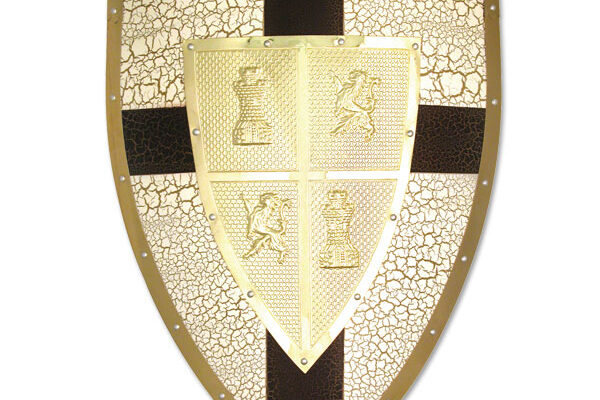Table of Contents
4 Options if a Credit Card Lawsuit Hits
When a credit card lawsuit strikes, it’s terrifying. However, you have options. None are perfect, but let’s look at some pros and cons and how each of these might work for you, and whether you need a credit card lawsuit attorney.
How we got here
How likely is it for a credit card company to sue you?
First, it helps to stop and look at how things got to this point. It surprises many of my clients when they initially contact me. They ask, “can a credit card or collector sue for missing payments?” The answer is, “yes.” If you miss a payment or two, we all know that a credit card company or their collectors can bug you. Collection harassment is extremely common, and of course a collection harassment lawyer is valuable to protect you.
Do credit cards usually sue? It depends. However, what many people don’t realize is that a credit card or their collection company can advance from collection harassment to credit card lawsuit. They don’t do this right away, and not every one of your credit cards will take their customers to court in all cases. But as a right and business practice, yes, if you wait long enough, the odds are that one of your credit cards will give you a collections law suit.
Credit card lawsuit statute of limitations in Calif
The lawsuit won’t be too soon
How long will credit cards wait to sue you if you’ve stopped paying? Or put differently, how many months before the credit card sues you? Can they wait too long where they blow the statute of limitations where I have a real defense? The answer, like most things in law is: “It depends.”
Firstly, credit card companies don’t typically file lawsuits for one missed payment. Or even two or three. It’s possible their collection harassment might produce results. Plus, it costs creditors less money to robocall you incessantly than lawyering up. Consequently, they wait a while if they’re going to file a complaint or summons with the local court for a collections lawsuit.
The lawsuit usually won’t be at the last minute
On the other hand, they’re not going to wait until the last minute to sue you either. They know how much time they have remaining on the statute of limitations, and as a rule, don’t wait until the final moment. They want to avoid miscalculating, and now you having the possibility of a defense.
The statute of limitations can be a successful defense to a cause of action. Each type of lawsuit has a different amount of time. Failure to maintain your payments is breaking your cardmember agreement. That is a contract between you and the credit card company.
In California, the statute of limitations for a breach of written contract claim is four years. That is, the credit card lawsuit statute of limitations in California is four years. Each state has a different law, so if you’re outside California, check with a local bankruptcy attorney near you like me.
Your options if a credit card company sues you
Now we understand how this happened. We can’t change the past. However, you can control how you respond. You can make an informed decision about how to best move forward.
Let’s start with a disclaimer. None of these options is advice for you, it’s just information, and none of them will be ideal. Each has a downside, and it doesn’t take a trained eye to find the negative in any given situation. The challenge is to identify the positive, and then weigh the good and the bad against your current priorities, future goals, and resources. This is one benefit of setting up a chat with an impartial professional who can analyze things objectively. But before you contact me, read on.
1. You can ignore the credit card lawsuit
Yes, that’s right: you can respond by not responding, and do nothing. Doing nothing is an option. No one is saying that ignoring a legal summons or complaint is a good option. In fact, it’s horrible to ignore legal deadlines and impair your legal rights. However, when brainstorming, everything goes on the table.
If you ignore the collections lawsuit, it will eventually and almost certainly turn into a judgment. A credit card judgment is a terrible, awful, very bad thing. With that, they can collect on the judgment and take your assets.
Pros:Â It’s free and costs nothing… yet; avoids bankruptcy; stress of wondering when they get the judgment and your life will change for the worse.
Cons: Judgment can garnish wages (usually 25% of your net pay in California), empty and levy bank accounts, and put a lien on your home, Also, the judgment grows at 10% annually with post-judgment interest until the balance is paid.
Ignoring a credit card lawsuit is generally a bad option.
2. You can defend the credit card lawsuit in court
Second, you can find a credit card lawsuit attorney and defend the collection lawsuit and respond to it. This involves preparing a legal response which explains valid grounds why you didn’t breach the contract. Note: it’s generally not a valid defense to explain that you don’t have the ability to repay. To win on this, you’ll need to prove that no, you did not break the contract.
Unless the credit card company sued the wrong person or you’re actually current with your minimum payments or they blew the credit card statute of limitations in your state, chances are there is no valid legal defense. That means that even if you go through the steps of replying to the lawsuit, that there will likely still be a judgment against you.
Pros: delay the inevitable; avoid bankruptcy… temporarily; chance you could win if you really didn’t break the contract or they waited too long to sue you
Cons: your lost time, money, and emotional strain of fighting ruthless collection lawyers in court for months or years
A small warning of caution of defending a collection lawsuit
How to defend a credit card lawsuit: There are numerous websites selling the notion “how to beat a credit card lawsuit” and how to win and defend a credit card law suit with these 5 common defenses and this one weird trick (and you won’t believe number 4!). Many of these are suggesting stalling tactics or technicalities to clog up the court system with defenses and discovery requests (which will take you a lot of time and energy with which to comply).
I say the following as someone who provides relief to desperate souls for twenty years. I write also as an attorney who successfully won a case against a large credit card company where a judge ordered them to pay tens of thousands of dollars. Beware of those selling false hope. Yes, you may be able to seek documents, or debt authentication by requesting evidence of chain of custody or lots of other things in discovery. And this may successfully slow down the inevitable end (and result) of the lawsuit. But it may also be frowned on by the judge as bogus or bad-faith defenses or discovery.
If they can afford a Jedi Knight, they will spend to collect their debt
However, do you believe that the same credit card companies who pay major movie and TV stars to advertise for them will turn around and hire Barney Fife as lawyers who are so sloppy that it makes the debts noncollectable? Even if one person were to successfully defend a credit card lawsuit in court due to negligent oversight, it’s reasonable to expect the massive conglomerate would immediately shut down that loophole so no one else ever did again.1
Again, I dedicate my life to help people who are overwhelmed by credit card debt. As a consumer debt attorney, I provide hope and relief to those who most need it. But that compassion must be tempered with truth and reality when appropriate.
The most likely result of fighting to win and defend a credit card lawsuit will be long, drawn-out discovery. This lawsuit discovery will require hours of your time. It will be a major emotional drain, cause bitter resentment, and a hard-fought battle when the multi-billion-dollar credit card company wins and its lawyers obtain a judgment in court for the debt.
The “win” of slowing things down will come at the cost of your inner-peace, angry obsession with the evil credit card company, and its bitter disappointment corroding a small piece of our soul.
However, in some cases, there can be strategic benefit to defending the credit card lawsuit. This, like most decisions in law, should only be done with clear-eyed realistic expectations.
3. You or a credit card lawsuit attorney can settle with the credit card company
Third, you have the option of settling the lawsuit. All they want is money. If you’re extremely fortunate, the credit card attorneys will agree to a series of payments. However, don’t expect a significant discount to settle the debt for pennies on the dollar. That ship sailed long before lawyers go involved, and they expect to get reimbursed for costs and fees.
Further, if they’ve spent the money to take you to court, they usually feel the ‘win’ or judgment is assured. There is little reason to give you a discount or accept $25 a month. As a rule of thumb, credit card companies will negotiate a settlement on a lawsuit with a lump sum payment.
Pros: You can negotiate a discount and save money on your balance; avoid bankruptcy; have the whole process over; get peace of mind.
Cons: Typically requires lump sum payment which you don’t have; stress of negotiating with attorneys; time involved of back-and-forth offers and counter-offers.
While you don’t need a debt settlement attorney to negotiate a debt resolution, it helps to have a professional who is outside the situation involved. First, it saves you a lot of emotional wear and tear. Second, this is what we do. Third, if a bankruptcy attorney like me makes an offer to settle a credit card debt, there’s an implicit threat that if they don’t accept, you file can bankruptcy and they get nothing. That kind of leverage can help a credit card lawsuit attorney negotiate a good result.
4. Filing bankruptcy ends a credit card lawsuit
Finally, bankruptcy should be the last resort, and usually is. You can file bankruptcy, and that will end the collection lawsuit. The benefit of the automatic stay — typically known as the Code‘s “bankruptcy protection” — means that creditors cannot start or continue any collection activity once they know you’ve filed bankruptcy. It’s an extremely powerful shield with the force of the federal government; creditors can be sanctioned thousands of dollars for willfully ignoring it.
Now, you should not just run into the safety of bankruptcy without first surveying the landscape. As each case is different, this is really where the major advantage of talking to a skilled bankruptcy attorney comes in. We can advise about any specific risks or benefits to your particular situation. So the following list of pros and cons will be very generalized until we learn your unique facts.
Pros: peace of mind; stops the credit card lawsuit; protects assets, paycheck, home, and bank accounts from collections; possibility of debt consolidation repayment, which could also be a con.
Cons: on your credit report for a number of years (but you can rebuild credit after bankruptcy); some cases involve liquidation of assets; payment to a bankruptcy lawyer, (which is almost always cheaper than paying all your debt).
Closing words
When faced with a credit card lawsuit, you have options. What you should do when you are sued for credit card debt depends on your unique circumstance, your priorities and goals, and your resources.
I’ve successfully settled collection lawsuits, which can be done if my client has the ability to offer a lump sum settlement. Payments on a debt settlement are possible, but less likely.
Doing nothing is the simplest: it literally requires no action on your part. But, it can lead to disastrous results.
If you’re in Los Angeles County, Orange County, Ventura or Santa Barbara Counties, reach out to me. I’ll provide a free Zoom consultation to those residents for 30 minutes to go over your options, provide the best advice I can, and explain if bankruptcy may help. I vow you’ll get experienced honest advice about what I believe is your best step forward.
Contact me now
Footnote
1It remain the opinion of this consumer debt attorney that large credit companies refuse to spend the money to put in processes to protect codebtors in Chapter 13 bankruptcy. Not enough debtor counsel prosecute violations of the codebtor stay, so credit card companies refuse to take measures to protect themselves and their shareholders. This is quite different from the very common process of ensuring they can prove you owe your debt, as it’s their bread-and-butter to come after you for their high-interest money and how they can afford superstars like Samuel L. Jackson and Jennifer Garner.





